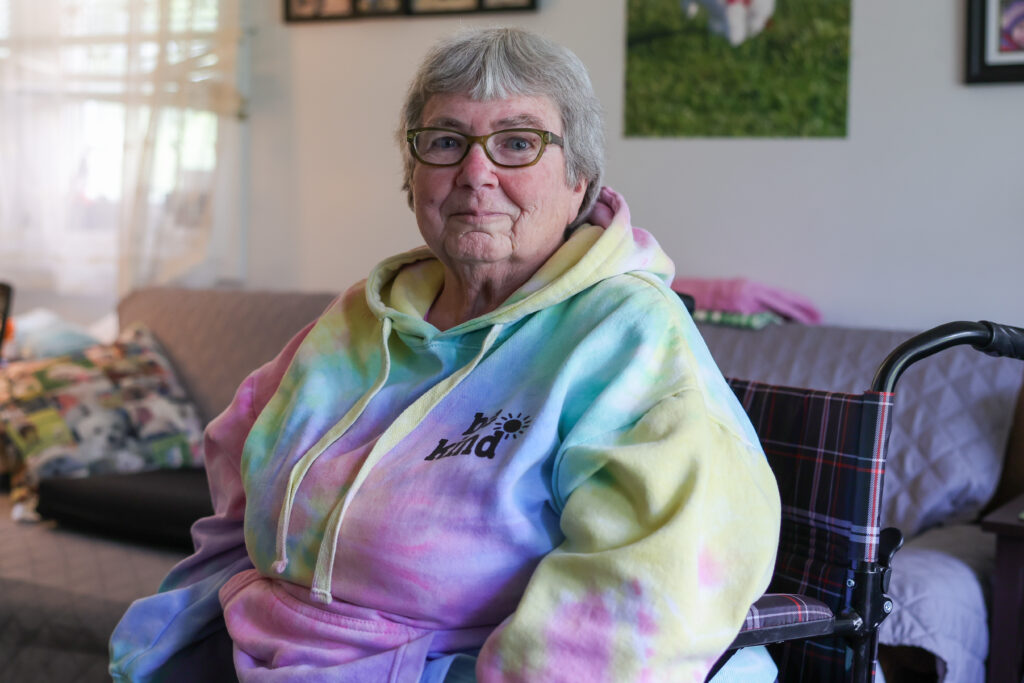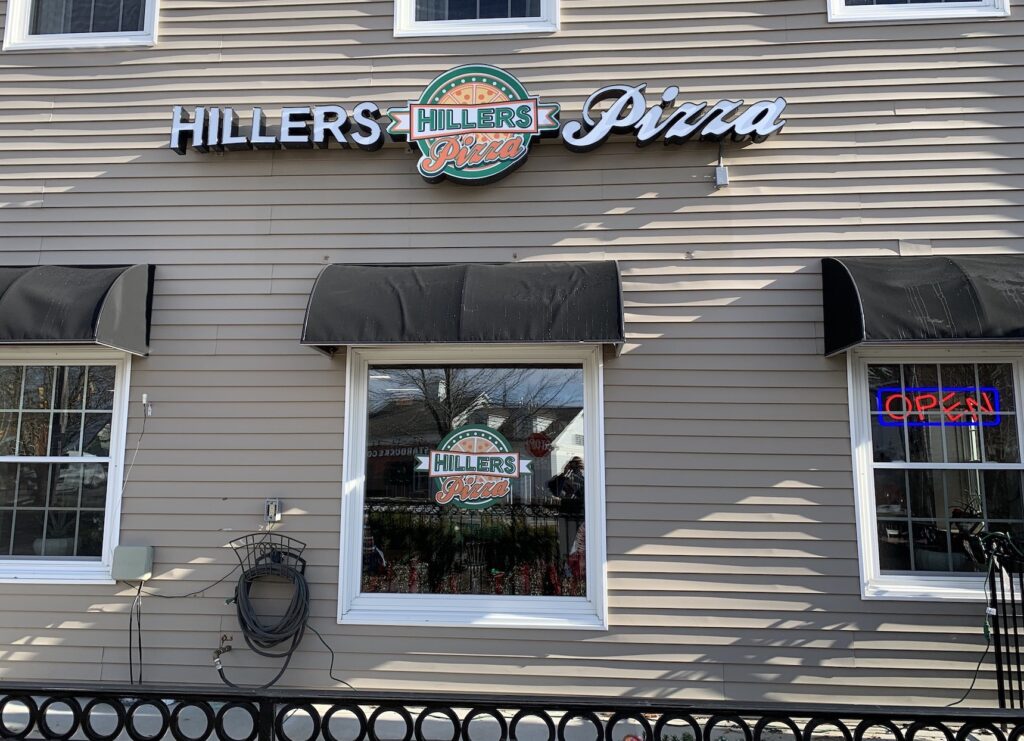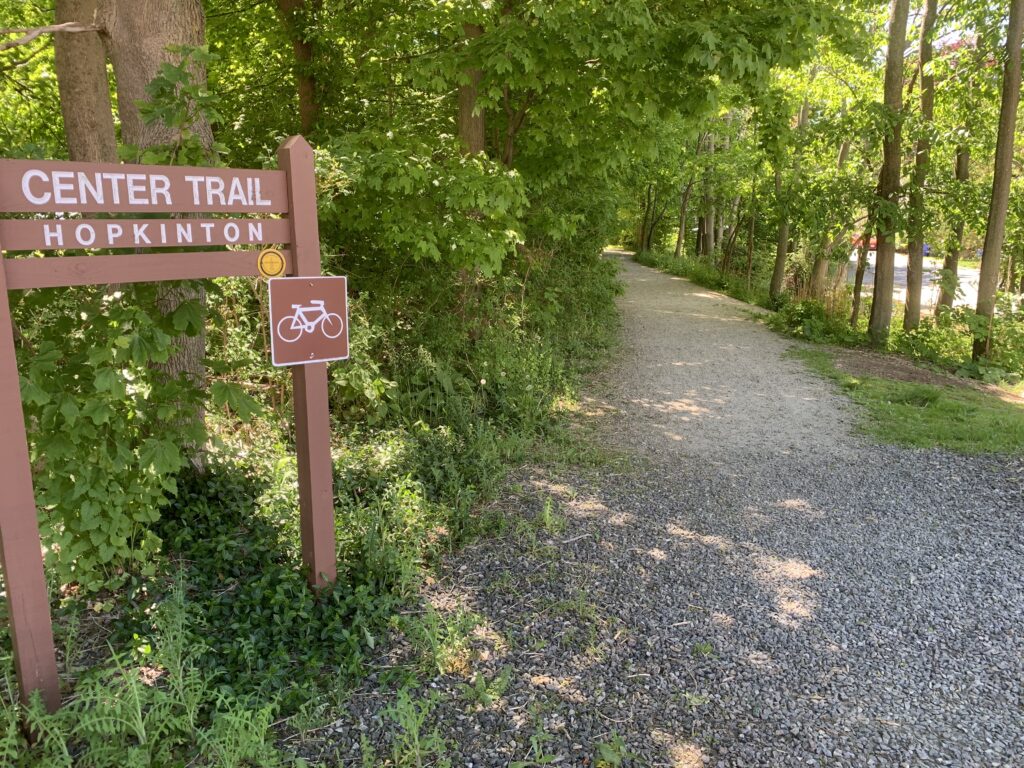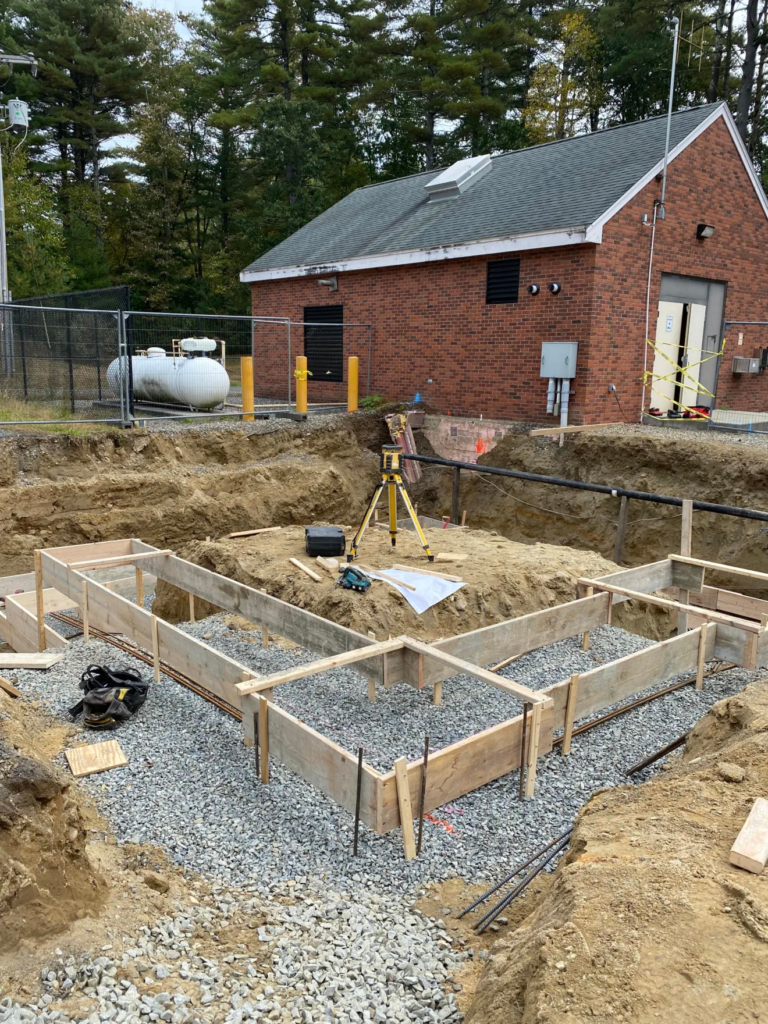
Nancy “Punky” Drawe is among the six members who were appointed to the town’s new Commission on Disability. PHOTO/JOHN CARDILLO
Nancy “Punky” Drawe is a lifelong Hopkinton resident. She is well known in town because of her outgoing personality and love of volunteering. She is the chair of the Council on Aging, the chair of the board of commissioners of the Hopkinton Housing Authority, and a member of the Senior Center’s Volunteer Advisory Committee. Her dog, Sally, an 11-year-old Morkie — a Maltese and Yorkie blend — is a town celebrity in her own right.
Despite her contributions, she is unable to enjoy all that the town has to offer because many of Hopkinton’s buildings, particularly in the downtown business district, are not accessible to people with mobility impairments such as herself. As a member of the newly formed Commission on Disability, Drawe hopes to change that.
“This is really important to me, because it’s not just me who experiences this,” said Drawe, who was elected to a three-year term. “I want to be an advocate, because there are lots of people with hearing, vision or mobility issues or illnesses like Asperger syndrome.”
Drawe, who uses a transport wheelchair, is one of the six members appointed to the commission at the July 11 Select Board meeting. Members include Drawe, Alex Danahy, Michael DiMascio, Select Board member Amy Ritterbusch and School Committee members Nancy Richards Cavanaugh and Holly Morand. The commission was approved by Town Meeting in 2022.
Drawe spoke with Town Manager Norman Khumalo a couple of years ago about the possibility of creating a commission focused on educating the town on the needs of people with different disabilities and how Hopkinton can be more inclusive in all aspects of community life.
“When I asked Norman about it, he was really cool with it,” she said of the commission. “I told him about all the things I couldn’t do because many of the buildings are not accessible. He said it may take a while because it had to go through an approval process with the state.”
“This is an important step for the community in many ways,” Khumalo said at the Select Board meeting. “In 2022, the town’s commitment to this theme was heightened by the emphasis placed on inclusion, equity and social justice.”
Drawe added that there used to be a town committee on disability, but it hasn’t been active in years.
Said Drawe: “It was only focused on town buildings.”
The state website currently lists Charles Kadlik, the town’s director of municipal inspections, as the commission’s contact person.
“I know they do it all by code,” Drawe said of building design and the number of accessible parking spaces. “But it doesn’t always help people.”
Drawe developed polio, a virus that can lead to paralysis, in 1955. While it now is largely preventable through vaccination, at the time Drawe contracted polio, it was one of the most feared diseases in the country, according to the Centers for Disease Control and Prevention.
When she was in her 50s, Drawe, now 68, was diagnosed with post-polio syndrome. This can occur 15 to 40 years after the initial infection and causes deterioration of nerve cells called motor neurons.
“The joint and muscle damage first started with my legs,” she explained. “Four years ago, I was able to walk around the Town Common with my puppy, Sally. Once I started using two canes, I really couldn’t go far. Now I use a wheelchair.”
There are “barely any” accessible parking spots around the Town Common, she pointed out. Some of them are near sidewalks with bricks, which causes balance issues. The new parking lot downtown may help.
There are many restaurants that she would like to visit downtown, she said, but they either have stairs or don’t have push buttons on the doors to open them. She was reluctant to name them because she wants to work with them as a commission member to improve accessibility.
“It’s not that they don’t care,” Drawe explained. “They just may not understand.”
She pointed out that one restaurant has a ramp to its front door, but it is difficult to get into the door. Once in the doorway, there is a second door to open, but there is not enough room to turn a wheelchair to try to open it.
Another restaurant has its accessible parking in the rear while the entrance is in the front. The ramp leads to stairs, which virtually defeats its purpose. Traveling across the broken and uneven sidewalks or high curbs is not an option for her.
“Sometimes my friends will go with me to help me,” Drawe added. “Other times, I have to get takeout. There is one place I would like to go to, but I can’t get in. All it would take is a little cement to make a ramp.”
Some restaurant employees who know Drawe will bring her takeout order outside to her. While she said it is a nice gesture, “It still makes me feel bad.”
Drawe stressed that she is not the only one who is affected by a disability of some type, whether it is a mobility, visual or hearing impairment. Improvements could be made that benefit everyone.
“We have thousands of people who come here every year because of the Boston Marathon,” she noted. “They expect to be able to enjoy local businesses.”
While the commission has not yet met, Drawe said she is excited about the energy she and her colleagues will bring to this issue. She hopes to work with businesses and other town committees to bring awareness to challenges and work toward solving them.
“People need to be heard, and they need to be helped,” she said. “Somehow, I hope this commission will make Hopkinton accessible for people with all types of disabilities. That goal is probably far-fetched, but I am sure our commission will have a lot of answers to try.”
One reason Ritterbusch joined the commission was so that she can contribute another perspective on the needs of people with disabilities.
“I am completely deaf in one ear,” she said. “I have that experience that I can bring to the commission.”
She noted that when there is a lot of background noise or several people talking, it is difficult to hear. One thing that helps her is using closed captioning when sound quality on digital platforms is not clear. She was happy to have closed captioning available at May’s Annual Town Meeting for the first time.
As part of her job as a software and web analyst at Wellesley Public Schools, Ritterbusch is making digital content more accessible. Things like blurry or small text can make understanding documents challenging.
“My focus would really be on the electronic aspect,” she said.
She noted that some committees still submit handwritten notes, which cannot always be translated to be read aloud for those with visual or hearing impairments.
Once the committee begins meeting on Sept. 18, members can begin to tackle challenges.
“The first step is to find out what the community needs and wants,” explained Ritterbusch. “Once we get more information, there may be state grants we can apply for.”
One issue she brought up was how new policies will be enforced. For example, there are some accessible parking spaces in town, but they are sometimes taken by people without special license plates or placards. Making sure that these spaces are close to building doors is another concern.
Ritterbusch added that a community survey, such as the one she recently helped create on the future of the Upper Charles Trail Committee, may help assess community goals. One thing she was told about that survey was that some people wanted printed copies in larger fonts because they have visual impairments.
“There’s a lot of things that are invisible barriers in navigating the world,” Morand, the School Committee member, told the Select Board during her appointment. In addition to the disabilities mentioned by Drawe and Ritterbusch, she also highlighted the importance of including people who are neurodiverse and may need special accommodations.
Said Morand: “Making this town more inclusive and more welcoming is something that you can never spend too much time on or put too much energy into.”
The Commission on Disability’s first meeting will be held on Monday, Sept. 18 from 7-9 p.m. at Town Hall.





















0 Comments